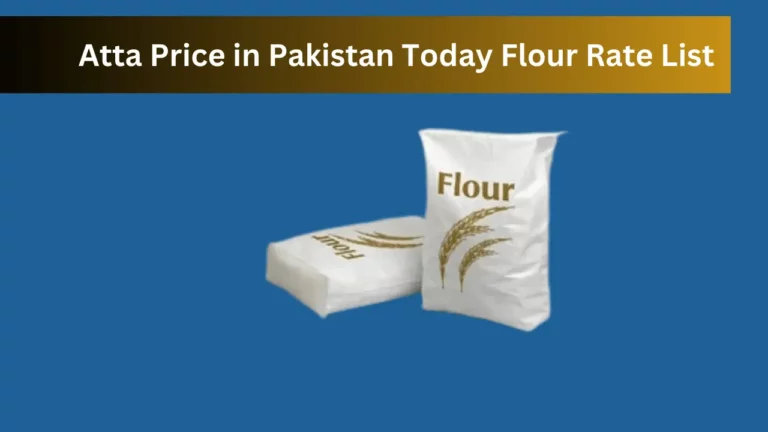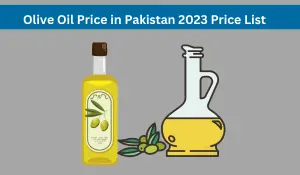Fertilizer Price In Pakistan (DAP, UREA, ENGRO) Rate List 2023
The Fertilizer Price in Pakistan fluctuates periodically due to multiple factors. During the wheat season, their prices reach their peak as farmers’ demand increases. In previous history, we have had a bitter experience regarding the cost, value, and availability of DAP, Urea, FFC, SONA DAP, and Engro Urea during winter.
Fertilizers are basic components of the agricultural sector. No one can deny the importance of fertilizers in a country where 40% of the GDP depends upon its agricultural products. In the local Urdu language, fertilizer is known as “khad” (khaad). Pakistan is an agricultural developing country, and the price of fertilizers in Pakistan plays a significant role in its economic growth.
In this article, we will closely examine the rates of Urea, DAP, Engro, Sarsabz, Sona, and more.
Fertilizer Price in Pakistan 13 June 2023 Rate List
Pakistan is considered one of the agricultural countries, and its annual GDP is highly dependent on its agricultural products. We are well aware that the development of the agriculture sector is merely a dream without the use of fertilizers. Unfortunately, the use of the best fertilizers is beyond the reach of small farmers. The latest rates of fertilizers (khad) are provided in the table.
DAP Rate today 14 June 2023
The latest rates of all types of DAP fertilizers are provided in the following table:
| Name of Fertilizer | Bag Weight | Price per 50 KG |
|---|---|---|
| DAP Sona | 50 KG | Rs. 10560 – 11000 |
| DAP FFC | 50 KG | Rs. 10560 – 11000 |
| DAP PakArab | 50 KG | Rs. 10560 – 11000 |
| DAP Sarsabz | 50 KG | Rs. 10560 – 11000 |
| MOP FFC | 50 KG | Rs. 11850 – 12200 |
| Sarsbz NP | 50 KG | Rs. 9390 – 9500 |
Urea Rate Today 14 June 2023
Some fertilizers are used for the growth of crops like Sona Urea and matteri Khad. The price table of Sona urea-type fertilizers is given below:
| Name of Fertilizer | Bag Weight | Price per 50 KG |
|---|---|---|
| Urea Sarsabz | 5o KG | Rs. 2440 – 2900 |
| Engro Urea | 5o KG | Rs. 2250 – 2950 |
| Sona Urea | 5o KG | Rs. 2440 – 2900 |
| SarSabz CAN-G | 5o KG | Rs. 2100 – 2300 |
| SarSabz CAN-F | 5o KG | Rs. 2100 – 2200 |
| Sona Boran | 5o KG | Rs. 900 – 100 |
| Sona Zinc Granular | 5o KG | Rs. 2250 – 2350 |
| SSP | 5o KG | Rs. 2000 – 2885 |
| NPK | 5o KG | Rs. 8000 – 8150 |
What are Fertilizers?
Fertilizer, or fertiliser, is an essential material that provides sufficient nutrients to plant tissues. These natural or synthetic materials enhance plant growth and result in increased yields. Farmers supply nitrogen (N), potassium (K), and phosphorus for higher income in the agriculture sector. There are two types of fertilizers, which include:
Natural Or Organic Fertilizers
Natural fertilizers or organic fertilizers are derived from organic materials such as plants and animals. The main content of organic fertilizers is carbonic molecules, which are necessary for plant growth. The ultimate goal of using fertilizers is to achieve a high yield and maximize profits. The benefits of organic fertilizers include:
- Enriching the soil with nutrients.
- Increasing the number of organic materials in the soil.
- Encouraging profitable microbial reproduction.
- Altering both the physical and chemical composition of the soil.
Origin of Organic Fertilizers
Organic fertilizers can be obtained from livestock manure, municipal sludge, agricultural waste, and industrial waste. Additionally, some organic minerals are naturally available in rocks. The use of such natural fertilizers minimizes farmers’ investments and enhances profits. Therefore, farmers should rely on organic fertilizers.
Synthetic Fertilizers
In the era of the latest technology, most fertilizers are chemically produced in industries. These fertilizers are beneficial for the growth and development of plants. Such inorganic fertilizers can be classified into two types.
Nitrogen Fertilizers
The main component of this type is nitrogen, which enhances the growth of crops. Some key importance of such synthetic fertilizers includes:
- Being an important component of chlorophyll.
- Regulating balanced photosynthesis.
- Containing protein and amino acid ingredients.
- Improving the quality and quantity of crops.
Phosphorus Fertilizers
Phosphorus is a significant nutrient in this synthetic fertilizer. It is important for the protoplasm of the cell, which is the basic living component of life. Phosphorus is essential for the growth of plant roots and shoots.
Factors affecting the Rates of DAP, UREA Fertilizers
Numerous factors contribute to price fluctuations, and these factors can vary from country to country. In Lassie’s fair democratic government, prices mainly remained uncontrolled. Such types of governments are usually unaware of the conditions of the public. Other significant factors that influence changes in fertilizer prices include:
Imported Materials
Pakistan relies on neighboring countries for many imported fertilizer materials. Foreign payments are generally made in dollars, and this is the main cause of high khad rates.
Natural Gas Price
Our fertilizer industry is dependent on natural gas. The prices of natural gas, such as LNG and CNG, have a direct impact on the cost value of DAP and Urea fertilizers. Higher prices of all petroleum products contribute to the increased rates of fertilizers in Pakistan.
Electricity Rates
Fertilizer industries utilize electricity for their production processes. If the rates of electricity per unit for commercial consumers increase, it directly affects the prices of industrial products. This is why fertilizer rates are directly connected to the electricity rates in the country.
Dollar Rates
The fluctuation in dollar rates in the open market significantly affects fertilizer prices in Pakistan. There are times when domestic fertilizer production falls short of meeting the demands of farmers. To bridge this deficiency, imported fertilizers are brought in. This is one of the reasons for the high dollar rates and the subsequent rise in fertilizer prices.
High Tax Rate Impact on Fertilizers
The Pakistani economy is directly dependent on the IMF loan scheme. The International Monetary Fund imposes high taxes on the public to repay the debt. Pakistan’s finance minister is obligated to accept all decisions of the IMF regarding taxation. High tax rates maximize the price values of fertilizers in the country. The IMF has even exerted pressure on the Pakistani government to eliminate all subsidy programs for fertilizers. This taxation system has increased the prices of DAP and Urea in Pakistan.
Importance of Fertilizers for agricultural Countries
Fertilizers play a crucial role in agricultural countries, including Pakistan, where a substantial portion of the GDP is generated from the agriculture sector. Without the use of fertilizers, no crop can yield significant profits. Therefore, the economic growth of agricultural countries relies heavily on the production of crops such as wheat, rice, corn, cotton, and sugarcane.
Subsidy on Fertilizers
The Pakistani government has implemented a subsidy system for fertilizers, specifically targeting DAP and Urea. However, some experts argue that this assistance is not reaching the intended farmers but instead benefiting middlemen and businessmen.
The government opted to provide subsidies to farmers through fertilizer dealers, but this system has proven to be a failure, leading to increased corruption within the agriculture system. As a result, businessmen and dealers have reaped significant profits, while farmers have been deprived of this subsidy
Kisan Card System
The Punjab government has taken the initiative to support small farmers through the Kisan Card program. Many farmers have applied for the cards and have received them through district and tehsil agriculture offices. However, they have been waiting for subsidized funds for several years.
Advantages & Disadvantages of Fertilizers
Pros
Fertilizers are used worldwide due to their high efficiency in promoting agricultural growth. Nowadays, agriculture without DAP or Urea is merely a dream because the increasing global population demands enhanced crop growth to meet the food requirements. Some important benefits of fertilizers include:
Cons
Apart from numerous pros, there are also a few cons and significant disadvantages of fertilizers:






